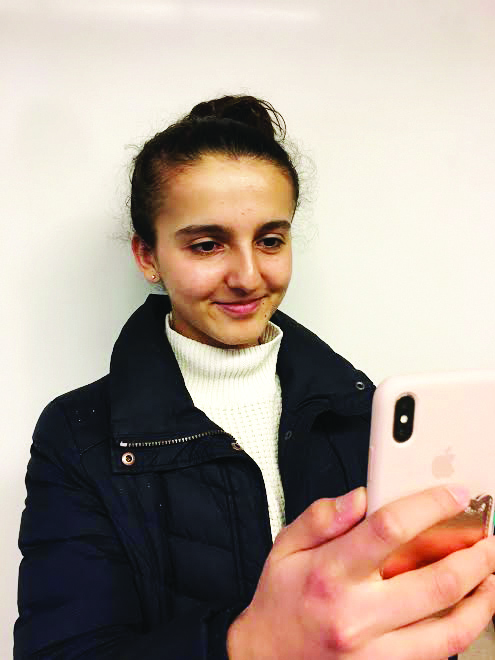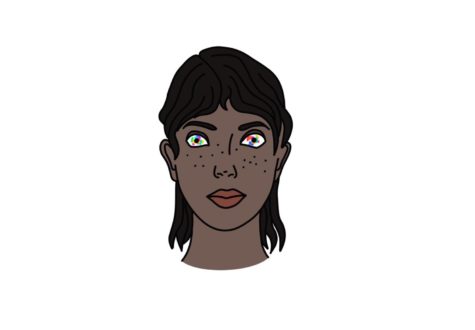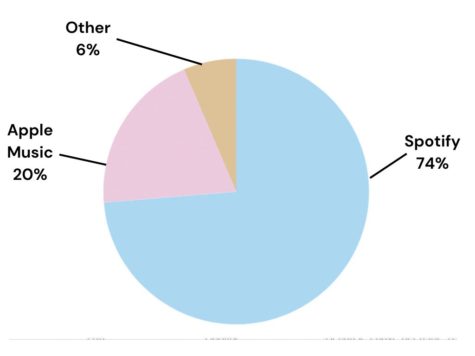iPhone X’s facial recognition feature poses questions
Privacy ethics face new reality with advancing technology
Sonia Baig ‘21 demonstrates the facial recognition technology on the iPhone X.
There has been a lot of talk surrounding the new facial recognition technology on the new iPhone X that came out early November of 2017. With the new technology, there is debate over the positives and negatives this feature.
Safaa Roba ‘19 brings up many points of the feature that are problematic. Although she is not an owner of the iPhone X, she has heard many controversial things about it and has her own opinions.
Roba feels as though the facial recognition feature could be a potential security hazard, especially pertaining to incidents she has read about that involved a scandal of the facial recognition not identifying Asian people as different individuals.
She says, “In terms of the facial recognition feature, I feel like it’s… easy. I can look at my phone and then open it. But at the same time, when reading articles pertaining to Asian people… her coworker can open her phone… I think that’s a problem.”
She sees other scenarios where she thought the feature could be at fault as well, for example with identical twins being able to open each other’s phones with this feature. As Jessie Rudin ‘18, owner of an iPhone X, explains, “It could have the potential to be really secure and everything, but right now it’s just not quite there.”
Also an owner of the iPhone X, Rohan Harle ‘21 feels like there are some problems with the feature. As for the facial recognition feature in light of growing technological innovation, Rohan says, “I mean it’s a pretty cool technological advancement, but I don’t see that it has a very practical purpose.”
He inquired, “I would probably say they are both equally secure and not secure because if you can’t get the facial recognition to work you can always just default to the password… they both rely on the password.” He does not believe that the iPhone X is more secure with the facial recognition than it would be with the regular password or fingerprint sensor.
However, in favor of the feature, Andrew Chang ‘21 especially enjoys that the feature generally works, especially in comparison to the thumb, and how easy it makes getting into his phone. He said, “I think it’s really cool because then I can just like look at my phone and then open it and… whoa!”
Chang is not the only one who finds the feature kind of freaky. Although Maia Chavez ‘21 does not have the phone herself, she agrees that the feature is super cool, innovative, and would be nice to have on her own phone. However, Chavez believes that the thumb lock for the phone is the most secure, and if she did have the iPhone X, would want to have both the facial and thumb lock as security measures.
This all begs the question, does facial recognition make valuable and sensitive information more secure, or cause a security risk? Is convenience really worth the possible risks? Did you ever wonder? Maybe it is worth your convenience, or maybe this a feature that is just simply misleading.

Hi, I’m Sarina! I have been writing for The Spectrum since my freshman year but am now InDepth Editor and Creative Director! I’m a New Yorker and...







![Campbell is a student that writes by hand for all of his classes, and according to him, he “[finds] it easier to remember stuff if [he] writes it down.”](https://www.blakespectrum.org/wp-content/uploads/2022/12/IMG-0178-356x475.jpg)
![Doran employs a handwritten list in a planner to stay organized, commenting that she just prefer[s] that to typing.](https://www.blakespectrum.org/wp-content/uploads/2022/10/image_67176449-1-356x475.jpg)

